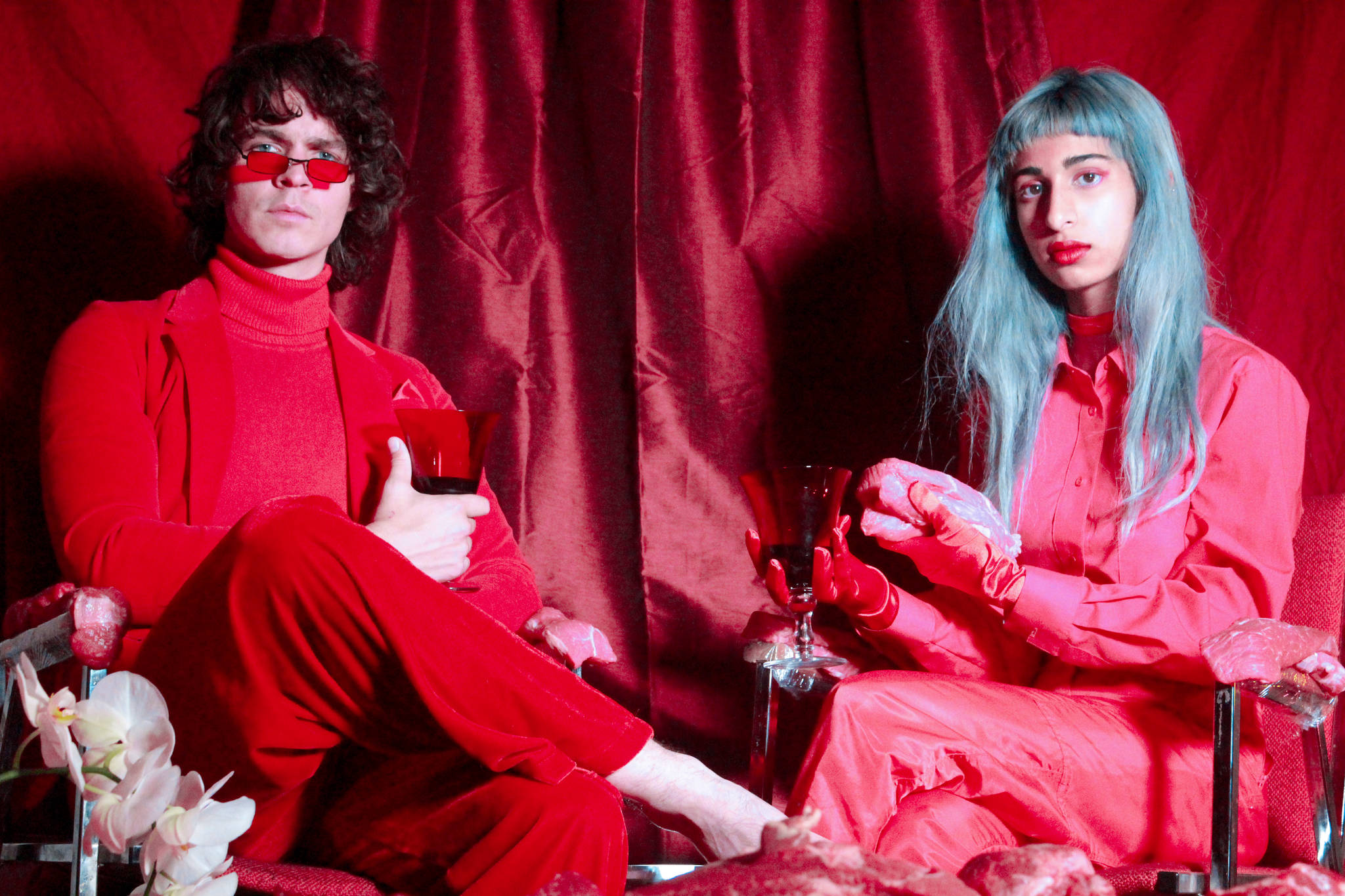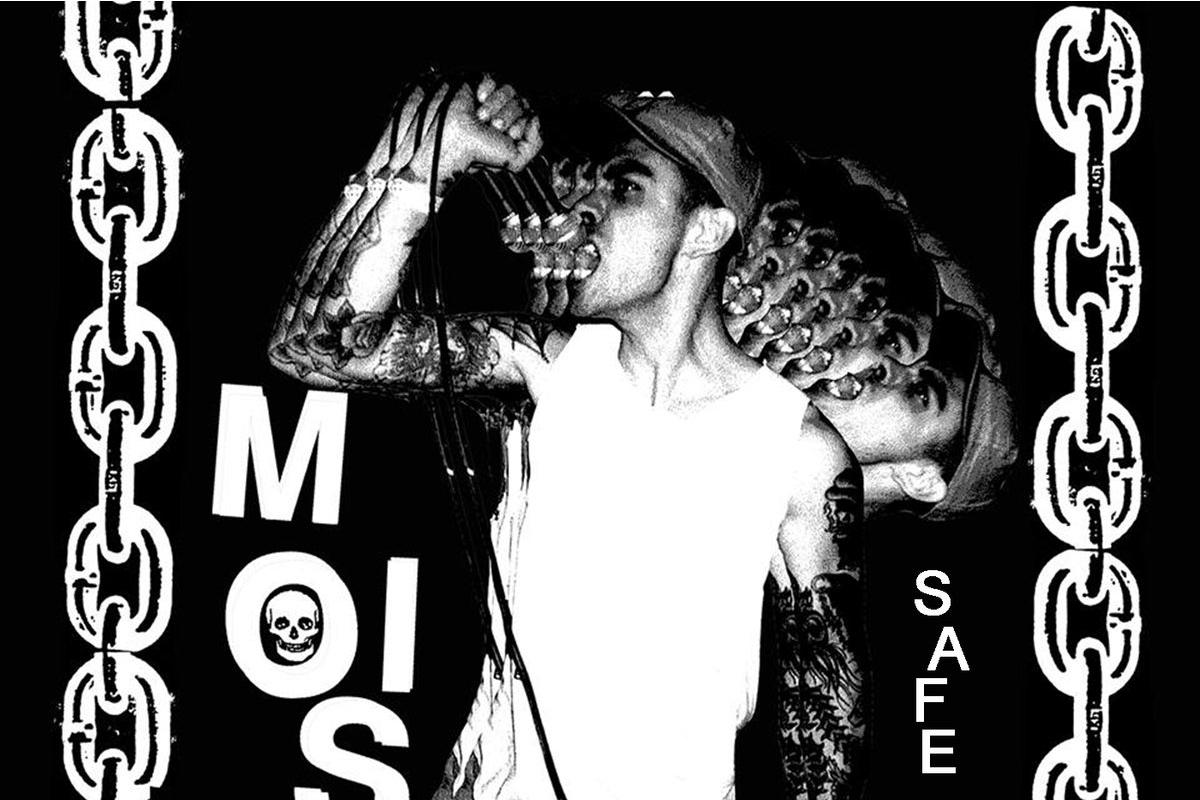Seattle drone chanteuse Foie Gras is a singular presence onstage, with only a guitar and handful of pedals that ring like vacant rooms. With sets clocking in at under 30 minutes and songs typically under two, she performs in a black latex mask that blots out her features. While this austere setup could be considered the pinnacle of asceticism, it really serves as a critical examination of feminine excess. The mask that obliterates her face highlights her frilled, Dolly Parton-esque frocks, her pristine white cowboy boots. The choral effect that divides her airy, California-accented vocals into crystalline harmonies will also be used to contort her voice into a cartoonishly masculine snarl, and she’ll often use this setting to startle crowds that insist on talking during her quiet sets. This sentiment is the crux of Foie Gras as a project: A disrespectful audience is just a microcosm of disrespect for the femme. Foie Gras is about feeling powerless in a world that refuses to respect you, chewing that feeling up, and spitting it back into the faces of those who perpetuate it.
I once overheard a bar patron liken Foie Gras to the morose, lank-haired singer/songwriter lurking in the dingiest corners of True Detective’s second season, but it’s a rather simplistic comparison, relying only on the commonalities of “sad” and “girl.” Instead, Foie Gras writes brittle and profoundly introspective music that makes the listener turn inward to avoid its full intensity, like breaking eye contact with a stranger. It’s music about mortality, about the eternal faultiness of the body. “Where were you when my dog died on my fucking birthday?” she once demanded of an audience, and I could swear that everyone listening felt personally scrutinized.
On tape, Foie Gras’ guitars burble through effects so soupy they’re transformed into atmosphere as opposed to melody, recalling Brian Eno’s Ambient 4: On Land. Her recordings are at times dizzyingly treble-heavy, creating Prurient-esque noise walls redolent with ghostly vocals that echo Chelsea Wolfe and Them Are Us Too. “I really, harshly defend the fragility and novice nature of lo-fi,” she says. “I don’t like things that sound too perfect, and couldn’t force myself to remove the comforting hisses and buzzes from my music.” But Foie Gras also has some further-flung influences, ranging from, according to her, “Andrew Jackson Jihad, Skullflower, Devendra Banhart, and most of all Mount Eerie,” imbuing her sound with dreamy Americana. Live, when the luxuriant excesses of delay and static are stripped down to their most integral parts, her music is a sparse and gripping interpretation of modern folk. “What I do live isn’t really ‘drone’ but definitely has whispers of the genre scattered through the songs. Drone to me is a personal and hypnotic experience I have alone in my room, and [I] don’t think I can bring the full force of it to the stage anytime soon.”
It is important, especially now, that Foie Gras is an unabashedly feminist project. Her “Not yours, never was” and “Girls against catcalling” graphics, all rendered in the same unapologetic pink as her album art, have been viral on the web for years. But like countless artists who have gained a certain amount of notoriety online, her work is rampantly plagiarized. It isn’t uncommon for fans to send her links to brands shilling T-shirts with her designs on them, uncredited.
“I got recognized by my idols because of it, but I also learned that there’s a dark side of money-driven feminism,” Foie Gras says. “It was made with good intentions and got capitalized upon by opportunists.” Since then she has spearheaded crucial open-forum discussions on how femme creators are undermined. “It has definitely deflated my ego,” she acknowledges. “I felt creatively impotent and maybe scared that it was my peak … I have adopted a new set of standards for how I live my life.” Foie Gras is feminism that suffers from acute resistance fatigue—disillusioned, mournful, but unyielding. Maybe it’s the music we need to be hearing right now. Foie Gras With Drab Majesty and more. Timbre Room, 1809 Minor Ave., timbreroom.com. $10. 21 and over. 7 p.m. Sat., Feb. 18. Foie Gras’ new single, “Devotee,” is available on foie.bandcamp.com.
music@seattleweekly.com







